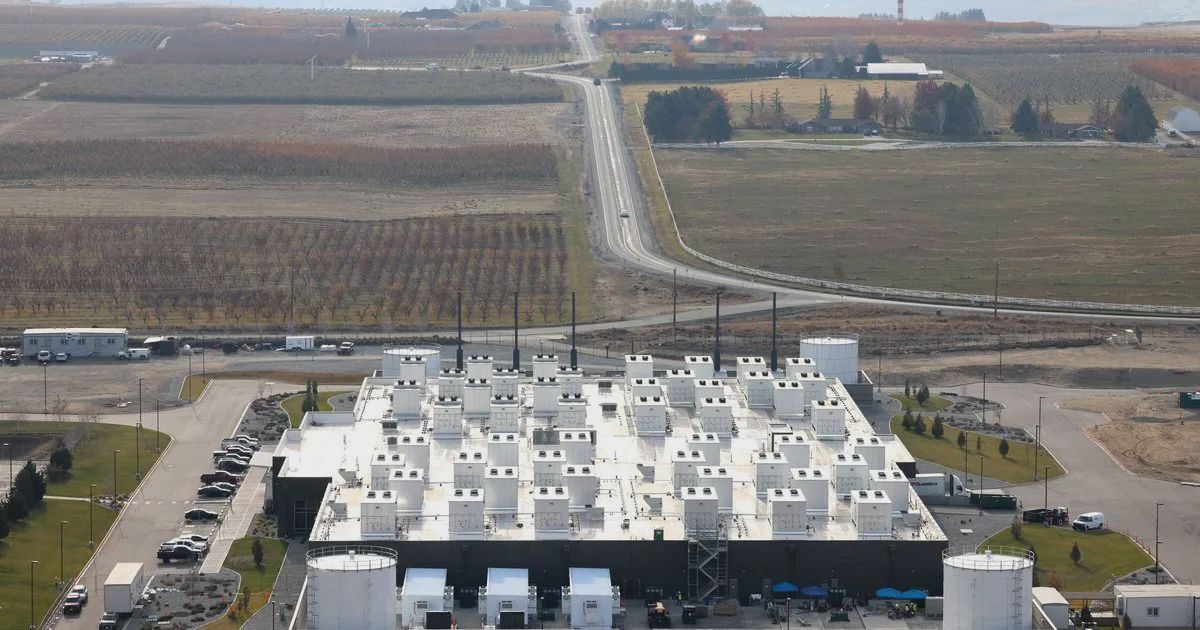from MCasq_qsaCJ_234@lemmy.zip to technology@lemmy.world on 04 Aug 2024 22:23
https://lemmy.zip/post/20335668
In 2010, as the country still reeled from the worst economic crisis since the Great Depression, tech companies, real estate developers and rural lobbyists went to the state Capitol in Olympia to press for a tax break for data centers.
Turning it down, supporters argued, would mean rejecting high-paying, long-term and environmentally friendly jobs in distressed parts of rural Washington. Owners of data centers — gargantuan facilities filled with computer servers that power the internet — were scouting Washington and other states for new homes.
“In the end,” then-state Sen. Rodney Tom, D-Medina, who advocated for the tax break, told his Senate colleagues, “we get the clean jobs that all the states are competing with, as far as the jobs it takes to run these things long term.”
State lawmakers nearly unanimously passed the special exemption and have kept the benefits flowing to the industry ever since. But the tax break has strayed from its original promises, and the state failed to fully scrutinize whether the sacrifices were worth it, a deep examination of legislative archives, public tax disclosures and utility data by The Seattle Times and ProPublica revealed.

threaded - newest
Because trickle down economics has been shown to work, right?
Corporate welfare do be like that
That doesn’t sound too earth-shattering.
I don’t know if the policy is actually a good idea, but I would imagine that Washington probably does benefit pretty substantially from having Microsoft around. I don’t think that Microsoft has to have datacenters in-state, but meh.
And speaking purely as someone in California who doesn’t particularly want to pay California datacenter rates, but likes datacenter service and access to services that make use of datacenters, if Washington wants to subsidize datacenters to try and get West Coast business, I’m not complaining.
www.digitalcorereit.com/portfolio/…/default.aspx
"Environmentally friendly"? No, they use crazy amounts of power.
"High-paying, long-term" jobs? Working in a data center may be in the tech field, but it doesn't offer what people think of as "tech money" and your opportunity for advancement is slim. Data centers also don't need to employ large numbers of people. They just suck up space and resources.
Edit:
Oh look, I was right. Could have told you all that before the state wasted money on this.
We should make all servers move to China
I do NOT trust China with those servers.
We did this here in Sweden…
Datacenters provide almost no local jobs, yeah sure, one or two technicians, a few security guards and one or two janitors, but that’s it.
Datacenters doesn’t need a lot of local staff once built.
Meanwhile, they draw a huge ammount of energy at a super low cost that won’t support upgrading infrastructure.
Microsoft has experimented with self contained underwater datacenter pods, which has no local staff and super cheap cooling.
If it’s a colo data center I can see it bringing lots of local jobs. For each unique tenant in the building they’ll need at least 1-2 people within driving distance. But if it’s just like a big remotely managed AWS data center… not so much.
Why would you need 1-2 techs per client?
That seems extremely inefficient
No the DC won’t have 1-2 techs per client, the clients themselves will have at least 1-2 techs or sysadmins or what have you to manage the hardware. And those guys will need to be somewhere in the general vicinity of the DC to go there if there’s a problem, physical inspections, etc.
It wouldn’t necessarily create jobs at the DC itself but in client companies utilizing it.
If the headline asks a question, the answer is almost always “no”.